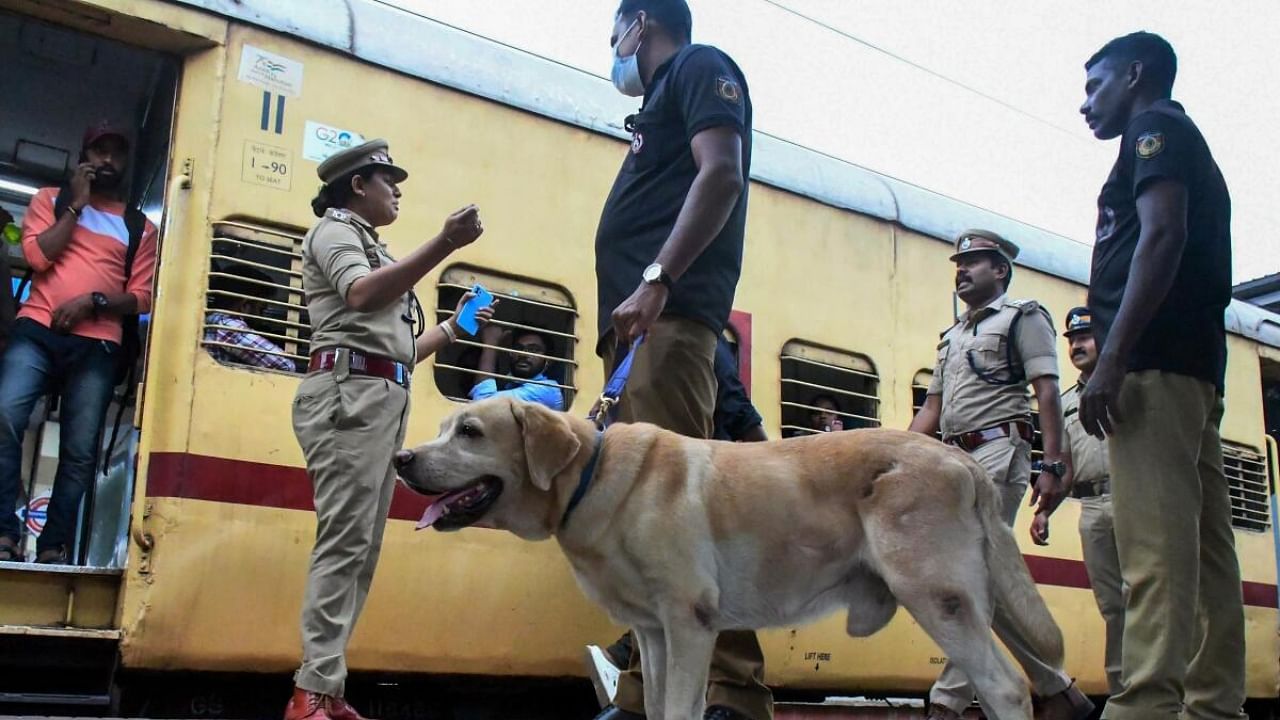
“Kerala Police are the best team in the country for maintaining law and order,” said Chief Minister Pinarayi Vijayan at an event in Kannur, on April 4. He further added that even critics would appreciate the investigative prowess of the force. This opinion comes barely five months after he criticised a section of the force whose actions were causing the whole force to bow its head down. “No mercy or courtesy can be given to those getting involved in such acts against the public. The force has no obligation to protect such individuals,” he said.
How close or far are Vijayan’s statements with respect to reality?
Around the same time as he made the above statements in Kannur, Shahrukh Saifi set fire to the Alappuzha-Kannur Executive Express train, killing three and injuring several others. The accused was nabbed by the Maharashtra Police from Ratnagiri, with active support from the Railway Protection Force and the National Investigation Agency (NIA). Vijayan chose to credit the Kerala Police for the arrest.
Also Read: NIA takes over Kerala train arson case
Saifi enacted what was written in Section 15 of the Unlawful Activities (Prevention) Act (UAPA). Among others, the Section defines any act with intent to strike terror, using inflammable substances of a hazardous nature, to cause death or injuries to persons, or damage to property, as a terrorist act. Such cases which are punishable with death or life imprisonment under Section 16, are handed over to NIA. Yet for some undisclosed reasons, the Kerala Police were reluctant to impose UAPA on Saifi for about two weeks.
It is not a secret that the Communist Party of India (Marxist), which is in power in Kerala, has strong objection to the UAPA, and has often complained that the Act blocks the normal process of justice. In reality, 145 UAPA cases were charged by the Kerala Police during the first term of the Vijayan government between 2016 and 2021.
Amidst public clamour, the party flagship newspaper Deshabhimani defended the government, saying the UAPA was not imposed for want of evidence, and labelled other media houses 'Right-wing’ for anti-establishment reporting. After the UAPA imposition, the paper was quick to report that the Kerala Police had suspected terrorist connections from the beginning, and even described how Saifi committed the act. In essence, they had to agree with the ‘anti-establishment’ reporting of those whom they termed as ‘Right-wing’.
In the initial stages of the investigation itself, the police had charged the Indian Penal Code (IPC) Section 302 (punishment for murder), Section 307 (punishment for attempt to murder), Section 326A (punishment for causing grievous hurt or burns or maims by using acid or other means), Section 436 (punishment for mischief by fire), among other Sections on Saifi. This reveals the Kerala Police were convinced that Saifi had used some inflammable substance to set the train on fire and kill passengers. Read this together with Sections 15 and 16 of the UAPA, and you would wonder what additional evidence the police were searching for in the last two weeks to establish the terrorist act! Is this how the force demonstrates its ‘investigative prowess’ that Vijayan lauded?
In the Kannur event, Vijayan had also said the police were people-friendly and that the people viewed the police as a source of refuge.
A few days after this statement, a car collided with a motorbike on the state highway near Manimala, resulting in the death of motorbike passengers. Witnesses identified that the person behind the wheels was the 19-year-old son of Jose K Mani, Rajya Sabha member and Vijayan’s close ally. In the first information report (FIR), strangely, the Kerala Police missed all elementary information, including the name and address of the driver, and identified him as a person aged 45. Mandatory medical tests were not done either. Only when a section of the media reported this news, did the police decide to charge Mani’s son with negligent driving. A witness later told the media that he didn’t see the accident, and that police officers took him to the station, and asked to sign on a paper.
If Vijayan truly means what he said, he should not extend any mercy to the officers who delayed the handover of the train fire case to the NIA, and tried to derail the Manimala case by leaving the door open for a random 45-year-old to assume the responsibility of the accident. Calling corrupt officers ‘bad apples’ wouldn’t be enough. Of all people, Vijayan must himself realise that the Kerala Police will need to get their acts together before they can be called people-friendly or a source of refuge.
(Sreejith Panickar is a political commentator. Twitter: @PanickarS)
Disclaimer: The views expressed above are the author's own. They do not necessarily reflect the views of DH.